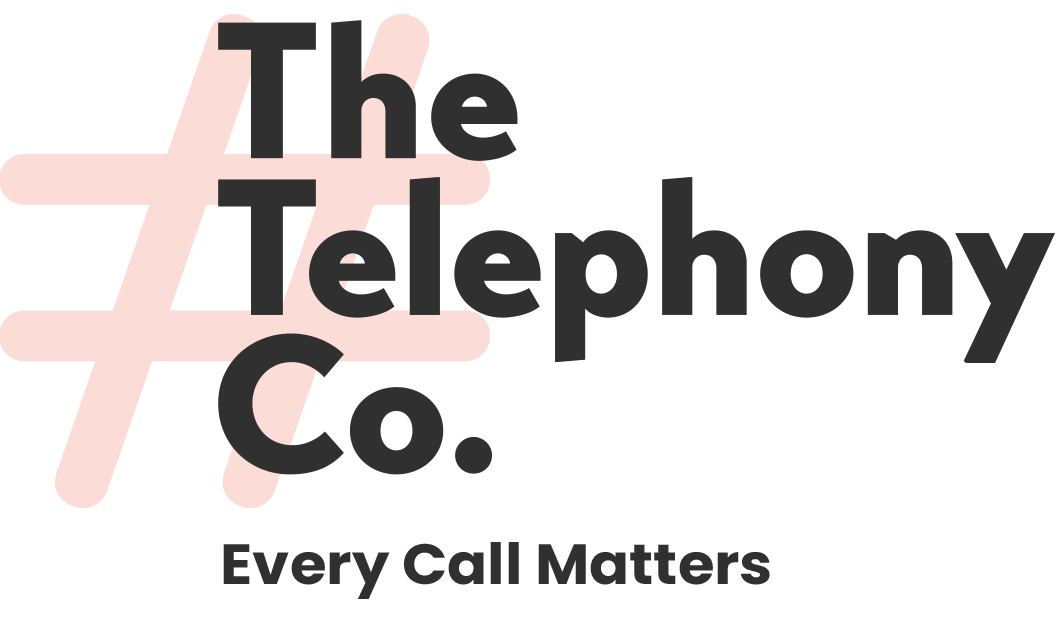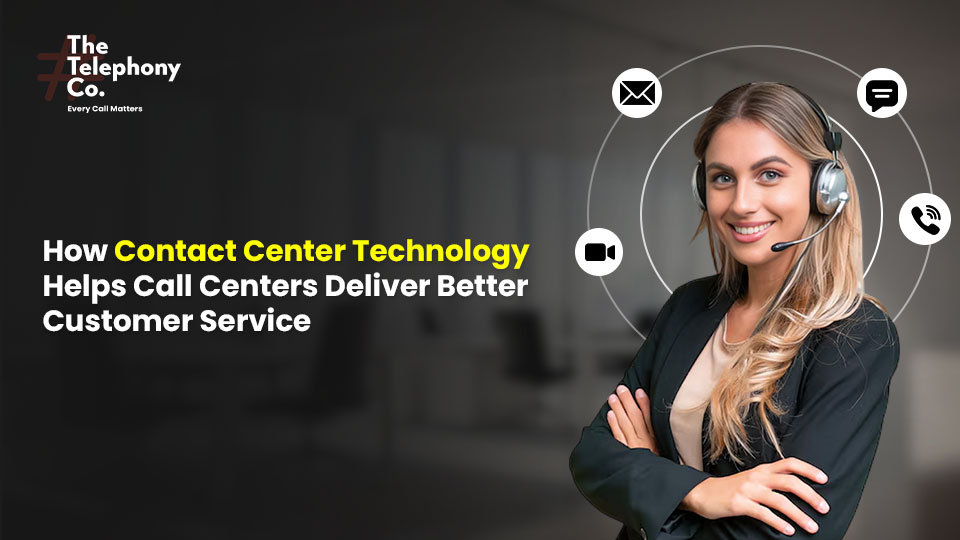Customer expectations are rising faster than ever. They want quicker responses, personalized experiences, and seamless interactions across every channel—phone, chat, email, social media, WhatsApp, and more. To meet these expectations, modern call centers rely heavily on advanced contact center technology.
Whether it’s inbound call support or outbound outreach, the right technology helps businesses deliver faster, smarter, and more consistent customer service. From AI-powered call routing to analytics dashboards, from CRM integration to automated dialers—today’s tools are transforming how support team’s work.
This article breaks down how contact center technology improves customer service, with dedicated sections for both inbound and outbound call centers.
What is Contact Center Technology?
Contact center technology refers to the digital tools and platforms that help call centers manage customer communication across multiple channels—such as voice calls, emails, chat, SMS, and social media. Instead of using separate systems for each task, contact center technology brings everything into one unified dashboard. This helps agents work faster, stay organized, and provide consistent service.
Modern contact center technology works through AI and cloud-based features. AI automatically routes calls to the right agent, predicts customer intent, analyzes sentiment, and generates quick responses through virtual assistants. The cloud makes the whole system flexible and accessible from anywhere, allowing businesses to scale up or down easily.
Boost Your Call Center Performance Today!
Book the Cloud Contact Center Demo
Explore Pricing
Start Your Transformation
Boost Your Call Center Performance Today!
Book Cloud Contact Center Demo
Explore Pricing
Start Your Transformation
Key Technologies Used in Inbound Call Centers
IVR (Interactive Voice Response)
An IVR system presents callers with automated menu options and routes them based on their choices. It reduces agent workload, speeds up service, and helps customers quickly reach the right department or solve simple issues through self-service.
How IVR Helps Customer Service
- Offers 24/7 automated assistance
- Reduces unnecessary transfers
- Helps in quick issue identification
- Supports self-service for tasks like balance checks or order tracking
ACD (Automatic Call Distribution)
ACD technology intelligently distributes incoming calls to the most suitable agent based on skill level, availability, or customer priority. It prevents long queues, shortens wait times, and connects customers to someone who can actually solve their problem.
How ACD Enhances Service
- Skill-based routing improves first-contact resolution
- Reduces customer frustration
- Balances workload across agents
- Eliminates bottlenecks during peak hours
CRM & Business Tools Integration
CRM integration provides agents with complete customer details, including past interactions, purchase history, open tickets, and preferences. This helps agents deliver faster, more accurate, and personalized responses without asking customers to repeat information.
How CRM Improves Customer Service
- Enables personalized communication
- Allows agents to understand the customer context
- Speeds up resolution time
- Improves service quality with consistent information
AI-Powered Support Tools
AI tools assist agents in real time by providing suggested responses, relevant knowledge base articles, and sentiment analysis. These tools guide agents through complex queries, reducing errors and improving response accuracy.
How AI Helps
- Ensures accurate, consistent responses
- Speeds up complex troubleshooting
- Detects customer emotions and urgency
- Reduces handling time through smart suggestions
Call Recording & Quality Monitoring
Call recording and monitoring tools allow supervisors to review interactions for training, compliance, and quality improvement. These insights help identify performance gaps, improve scripts, and raise overall service standards.
How Monitoring Improves Quality
- Helps train new agents
- Ensures compliance with policies
- Detects recurring issues
- Maintains consistent service delivery
Omnichannel Support
Omnichannel platforms allow agents to handle calls, chats, emails, social messages, and WhatsApp conversations from one dashboard. Customers can switch channels without repeating themselves, creating a smooth and unified support experience.
How Omnichannel Improves Service
- Reduces friction during channel switching
- Keeps communication history in one place
- Supports faster, more organized responses
- Enhances customer convenience
 Also Read: ECHO Contact Center Software
Also Read: ECHO Contact Center Software
Key Benefits of Using Contact Center Technology for Inbound Call Centers
Reduced Wait Times
Smart routing, ACD, IVR menus, and automated workflows ensure customers are quickly connected to the right department. This reducing wait times and improving overall call flow.
Higher First-Call Resolution (FCR)
Agents equipped with CRM data, AI suggestions, previous interactions and unified dashboards can solve problems faster on the first attempt and single call.
Better Customer Experience
Omnichannel support (voice, chat, email, WhatsApp) ensures customers can contact the business through any channel they prefer.
AI-Powered Support
AI tools like chatbots, auto-replies, and sentiment analysis help agents handle more queries and understand customer mood.
Real-Time Monitoring & Reporting
Supervisors and team leaders can track live calls, agent performance, and queues to ensure quality and efficient workforce management.
Scalable Operations
Cloud contact center solutions allow businesses to scale up or down based on call volume—without expensive hardware.
Take your Call Center to the Next Level with Advanced Automation
Key Technologies Used in Outbound Call Centers
Predictive Dialers
A predictive dialer automatically calls multiple numbers at once and connects agents only when a live person answers. This eliminates idle time, boosts talk-time, and makes campaigns significantly more productive.
How Predictive Dialers Improve Outbound Service
- Reduce manual dialing
- Increase agent efficiency
- Connect agents to more customers
- Boost conversions through higher call volume
Auto Dialers & Power Dialers
Auto dialers automate outgoing calls in bulk, while power dialers dial numbers one at a time in a controlled manner. Both systems improve calling speed and streamline follow-ups, helping agents maintain consistent outreach.
How Dialers Enhance Customer Service
- Reduce human errors in dialing
- Ensure timely follow-ups
- Increase outbound call volume
- Improve customer contact rates
CRM & Other Tools Integration
CRM integration provides agents with detailed information about leads, including personal details, buying stage, past conversations, and interests. These insights allow agents to deliver highly personalized and relevant pitches.
How CRM Enhances Outbound Performance
- Improves script accuracy
- Increases chances of conversion
- Stores all customer communication history
- Ensures consistent messaging across the team
Analytics & Reporting Tools
Analytics platforms track call metrics such as connection rates, conversion ratios, agent performance, campaign impact, and lead quality. These insights help managers optimize strategy for better outcomes.
How Analytics Improve Outbound Strategy
- Identify best calling times
- Evaluate agent productivity
- Analyze lead behavior patterns
- Improve campaign ROI
Voice Broadcasting Systems
Voice broadcasting tools send automated voice messages to a large number of customers simultaneously. They are effective for sending reminders, announcements, promotions, and alerts with minimal manual effort.
How Voice Broadcasting Helps Customer Service
- Deliver information instantly
- Reduce manual workload
- Maintain consistent messaging
- Enable large-scale outreach
AI Tools for Sales Optimization
AI-powered sales tools analyze customer intent, recommend best responses, predict conversion likelihood, and optimize scripts. They help agents make smarter decisions and deliver more persuasive conversations.
How AI Strengthens Outbound Sales
- Improves call quality
- Forecasts lead potential
- Enhances persuasion with dynamic scripts
- Maximizes closing opportunities
 Also Read: Advantages of Using Cloud Contact Center
Also Read: Advantages of Using Cloud Contact Center
Key Benefits of Using Contact Center Technology for Outbound Call Centers
Increased Agent Productivity
Automated dialers (predictive, power, and auto dialers) help agents connect with more customers in less time, reducing idle time between calls.
Higher Call Connect Rates
Intelligent call routing and dialer algorithms reduce busy tones, unanswered calls, and voicemails—boosting the number of successful connections.
Enhanced Campaign Performance
Supervisors can monitor campaigns in real time, track KPIs, adjust strategies instantly, and improve overall call outcomes.
Better Lead Management
Contact center systems integrate with CRMs to organize leads, schedule follow-ups, and ensure no opportunity is missed.
Strong Compliance and Quality Control
Features like call recording, DND filtering, monitoring, and audit logs ensure outbound calls follow regulatory and quality standards.
Faster Customer Engagement
Contact center tools enable personalized outreach through voice, SMS, email, and WhatsApp—making engagement quicker and more effective.
Why (inbound & outbound) Call Centers Are Switching to Cloud-Based Contact Centers
Lower Operating Costs
Cloud contact centers remove the need for expensive hardware, on-site servers, and maintenance teams. Businesses only pay for what they use, making it far more cost-efficient.
Easy Scalability
Call centers can instantly scale up or down based on call volume—perfect for seasonal spikes, campaigns, or business growth without investing in new infrastructure.
Work From Anywhere
Cloud systems support remote and hybrid teams. Agents can log in from anywhere with an internet connection, making staffing more flexible and reducing office costs.
Faster Deployment
Traditional call centers take weeks or months to set up. Cloud contact centers can be deployed in days, sometimes even hours.
Better Reliability & Uptime
Cloud platforms offer strong redundancy, automatic backups, and higher uptime—minimizing downtime and ensuring uninterrupted operations.
Advanced Features & Integrations
Cloud solutions provide modern tools like AI, automation, omnichannel support, real-time analytics, and easy CRM integration—all without the hassle of manual setup.
Enhanced Customer Experience
With intelligent routing, faster responses, and multi-channel communication (voice, chat, email, WhatsApp), customer satisfaction improves significantly.
Improved Security
Cloud providers offer enterprise-level security, encryption, compliance support, and continuous updates—much safer than legacy systems.
Automatic Updates & Maintenance
Software updates, bug fixes, and new features roll out automatically, eliminating IT workload and keeping the system always up-to-date.
Business Continuity & Disaster Recovery
Cloud infrastructure ensures data and operations remain safe even during outages, disasters, or local failures—keeping the call center running smoothly.
Conclusion
Contact center technology is essential for delivering better customer service across both inbound and outbound environments. Modern tools like IVR, CRM, ACD, predictive dialers, AI assistance, omnichannel systems, and analytics empower call centers to simplify workflows, personalize communication, and respond faster.
For inbound centers, technology reduces waiting times and improves issue resolution. For outbound teams, it increases contact rates, boosts conversions, and ensures meaningful customer engagement.
Businesses that invest in the right contact center technology not only enhance customer satisfaction but also gain a competitive edge in efficiency, performance, and overall service quality.
FAQ's
What is the difference between a call center and a contact center?
A call center handles voice calls only, while a contact center manages voice plus multiple digital channels like chat, email, and social media.
How do chatbots reduce call center workload?
Chatbots handle repetitive queries like FAQs, order tracking, and troubleshooting. They reduce call volume and allow human agents to focus on complex cases.
Can small businesses use contact center technology?
Absolutely. Cloud-based systems make it affordable and scalable for small and medium businesses.
How does cloud contact center technology support remote work?
Cloud platforms allow agents to work from anywhere using laptops or mobile devices. Supervisors can monitor performance in real time, making remote teams highly efficient.

